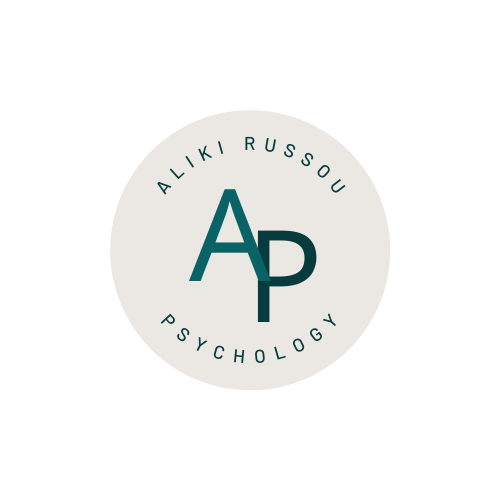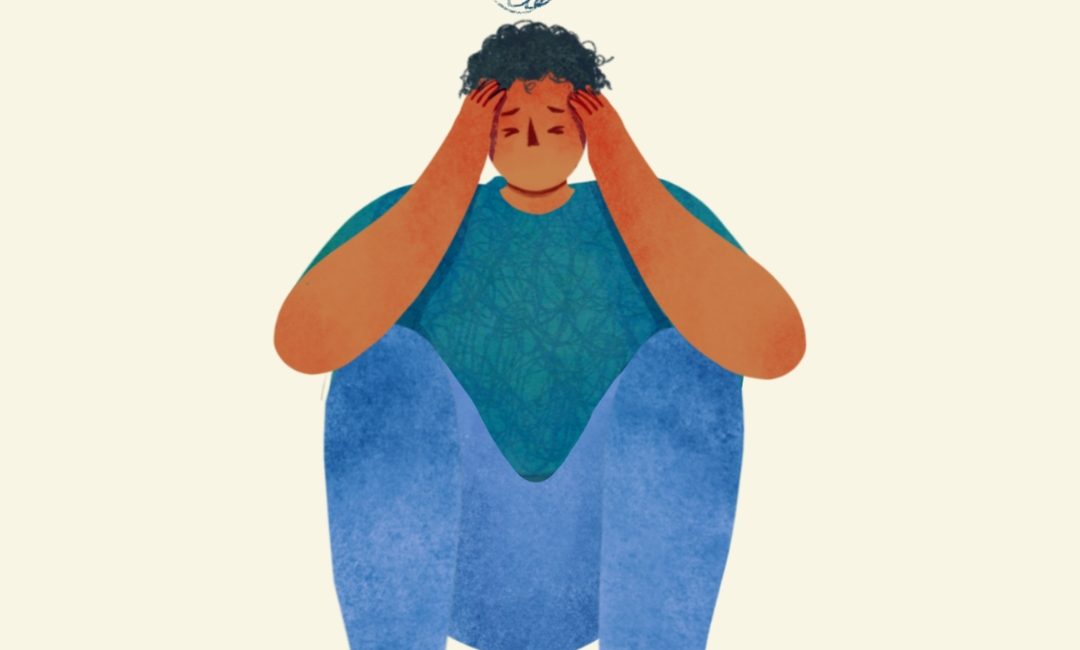Author of the article: Psychologist and psychotherapist Aliki Roussou
What is anxiety?
Anxiety is a natural reaction to threat. It helps us survive by warning:
“Be careful! You might lose something very valuable and important in your life — and you’re not ready for it.”
How do we experience anxiety?
Anxiety is a state accompanied by general arousal and tension in both body and mind. A person feels that their very existence is under threat — that the foundation supporting their life may collapse or cease to exist.
They feel as if they are standing on the edge of an abyss, into which they may fall by losing a job, a home, loved ones, or facing a situation they cannot cope with — where reality slips beyond their control.
Anxiety can also be associated with the fear of losing control over oneself. A person may be afraid of developing a terminal illness, having a heart attack, or going insane.
When does anxiety become pathological?
We speak of pathological anxiety when its intensity is excessive and disproportionate to the actual threat. When a person misinterprets physical symptoms or situations as dangerous and responds to them with intense stress.
For example:
A mother of a 17-year-old becomes extremely anxious if her son is 30 minutes late. In her imagination, she pictures terrifying scenarios of his death, escalating into a panic attack. Her mind chooses the most frightening explanation for the delay instead of starting with the simplest and most likely one: the teenager was simply talking to friends.
Of course, life is full of risks, and anxiety reminds us of the frightening, uncontrollable side of existence. There is no absolute safety — death can strike on the street, at home, even in one’s sleep.
The woman’s anxiety in this case is not entirely baseless, yet it is pathological because, out of the many possible reasons for her son’s delay, she chooses the most terrifying and ignores all others.
The main criterion by which we determine that anxiety has shifted from normal to pathological is the degree to which it starts limiting a person’s functioning.
Primary anxiety evolves into anticipatory anxiety, turning into fear of fear. The person begins to avoid triggers — any situations that may provoke anxiety. As a result, their “safe zone” shrinks, life becomes constrained, and self-actualization becomes significantly impaired.
Is there a way out of an anxiety disorder?
Yes, there is — and it lies within the anxiety itself.
Anxiety is always tied to an irrational desire to control things that are beyond your control. For example, you fear war, and to cope with your fear, you watch every news update on TV. This gives you the illusion that you are at least partially in control of the situation.
People prone to anxiety disorders do not accept life in its entirety. They refuse to accept that death, war, accidents, illness, and natural disasters are part of it. They try to freeze life in familiar and understandable forms. Anxiety becomes the price they pay for denying reality.
Healing from anxiety lies in understanding and accepting how the world really works — in the search for meaning.
No living person is immune from encountering the terrifying side of existence.
And here, we should recall Viktor Frankl and his profound work “Man’s Search for Meaning,” in which he reflects on his life in a concentration camp and the loss of his family and friends. He emphasizes that it is values, not control, that are the true support of our existence.
A person can respond to any situation with their own meaning — in how they choose to relate to their suffering.
In difficult times, a person’s true values are revealed, and it becomes clear how they relate to themselves and the world.
Frankl wrote:
“Meaning is about making the best of what is possible.”
In my work with clients suffering from anxiety disorders, I try to understand their relationship with life.
How do they see it?
As reliable, predictable, friendly toward them?
For people prone to anxiety, life seems frightening and dangerous.
They are afraid of ending up in situations they cannot manage.
An anxious person does not fully accept the world, does not live fully — they are trying to protect themselves from it.
I help my clients recognize their avoidance strategies, to stop overcontrolling and fearing change.
Instead, we look together for inner resources, anchors within the person themselves, that will help them feel capable of coping with difficult circumstances as they arise.
Gradually, they open up to the world and begin to engage with it more fully.

